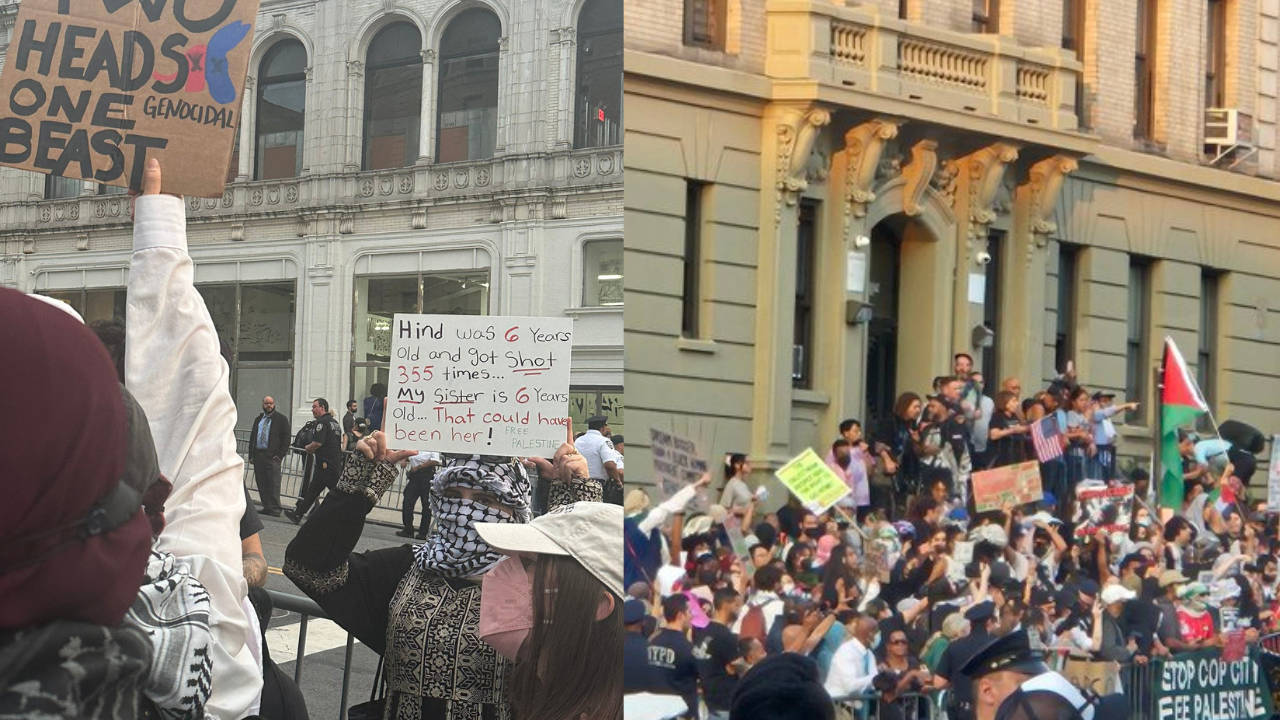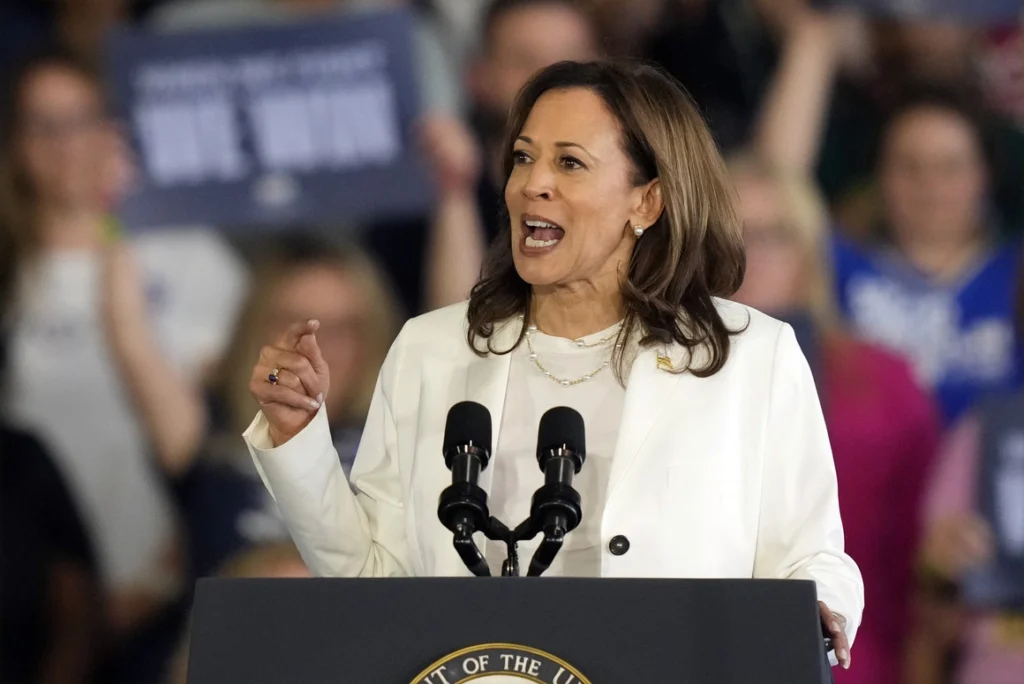Introduction
On Wednesday night, a rally in New York City to kick off support for Vice President Kamala Harris’ 2024 presidential campaign was met with a substantial and vocal pro-Palestinian protest. The event, intended to unite Democrats behind Harris, instead highlighted one of the party’s significant internal conflicts: differing views on U.S. policy towards Israel and Palestine.
The Rally’s Atmosphere: Democratic Unity and Optimism
The “New York City Kickoff” rally, held in Harlem, was designed to project a strong sense of unity among New York Democrats. High-profile figures like New York City Mayor Eric Adams and Governor Kathy Hochul took the stage to energize the crowd, emphasizing the importance of defeating Donald Trump and stressing the historical significance of Harris potentially becoming the first woman president.

Mayor Adams, addressing the crowd, underscored the stakes of the upcoming election, urging attendees to channel their frustrations into voting in November. The rally’s tone was one of determined optimism, with speakers acknowledging the challenges ahead while rallying support for the Democratic ticket.
Disruption by Pro-Palestinian Protesters
However, the atmosphere of unity was repeatedly interrupted by a large group of pro-Palestinian demonstrators. These protesters, carrying banners and chanting against Israel’s military actions in Gaza, represented a growing rift within the Democratic Party. The protesters outnumbered the rally attendees, underscoring the intensity of the opposition to U.S. support for Israel among certain Democratic voters.
Mayor Adams responded to the disruptions with calls for the protesters to focus their energy on the upcoming election. He acknowledged their right to protest but stressed the importance of unity in the face of what he described as a binary choice between Harris and Trump.
The Pro-Palestinian Demonstration: A Call for Change
Outside the rally, the pro-Palestinian demonstrators made their voices heard, not just through chants but by distributing flyers urging Democratic National Convention delegates to support a ceasefire in the Israel-Hamas conflict. The protestors highlighted a growing dissatisfaction within the Democratic base over the party’s stance on Israel, an issue that has increasingly become a flashpoint in U.S. politics.
The demonstrators were not only calling for a change in U.S. foreign policy but also signaling their discontent with Harris’ position—or lack thereof—on the issue. This protest, larger in number and more persistent than the rally itself, suggested a deepening divide within the party that Harris will need to address as her campaign progresses.
Leadership’s Response and the Path Forward
New York City Council Member Gale Brewer, reflecting on the protests, noted that Harris would need to address these concerns head-on, particularly the calls for a ceasefire in the ongoing Israel-Hamas war. This sentiment was echoed by other Democrats at the rally, who acknowledged the importance of bringing the party together while also recognizing the need to engage with and address the concerns of all factions within the Democratic base.
Inside the rally, Governor Hochul and Representative Adriano Espaillat encouraged the crowd to not only support Harris but to actively campaign in swing states and districts. They stressed that the future of the nation was at stake, urging attendees to commit to the cause.
The Challenge for Harris
For Kamala Harris, the NYC kickoff rally was a microcosm of the broader challenges she faces in her 2024 presidential campaign. While the rally aimed to project unity and enthusiasm, the presence and persistence of the pro-Palestinian protesters underscored the divisions within the Democratic Party. As Harris prepares to formally launch her campaign and head into the Democratic National Convention, she will need to navigate these internal conflicts carefully.

The protest highlighted a key issue that Harris has yet to fully address: U.S. policy in the Middle East, particularly regarding Israel and Palestine. The demonstrators’ calls for a ceasefire and criticism of U.S. military aid to Israel are reflective of a broader debate within the party that Harris will need to engage with if she hopes to unify the Democratic base.
Conclusion
The NYC kickoff rally for Kamala Harris was intended to be a celebration of Democratic unity and a rallying cry for the upcoming election. However, the event also served as a stark reminder of the internal divisions within the party, particularly regarding U.S. foreign policy in the Middle East. As Harris moves forward with her campaign, she will need to address these divisions and find a way to unify her party while also engaging with the concerns of all voters.
The pro-Palestinian demonstration at the rally is a signal that the 2024 election will not only be a contest between Democrats and Republicans but also a test of the Democratic Party’s ability to reconcile its diverse and often conflicting views on key issues. For Harris, the path to the White House will require not just mobilizing the Democratic base but also addressing and bridging the divides within it.
Read More: Bipartisan Push for Family-Friendly Policies Gains Momentum
